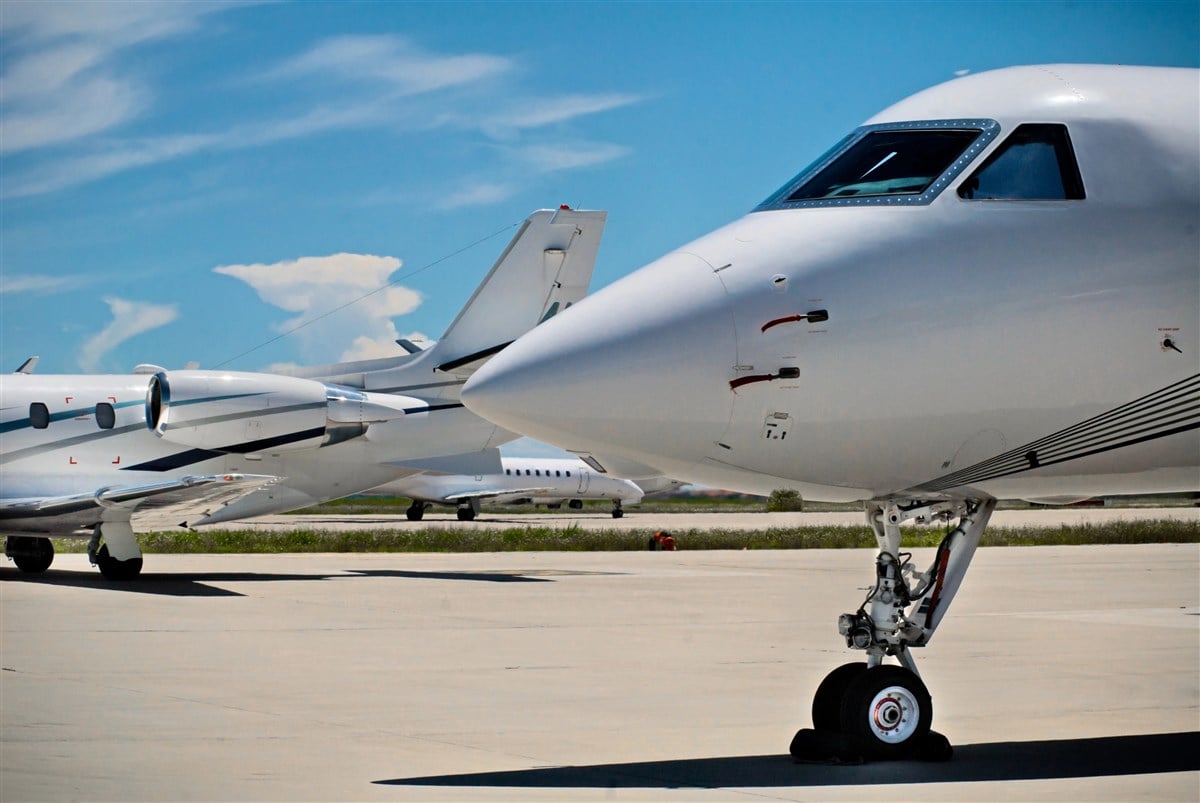
The aerospace sector had a strong 2024, but 2025 may be even stronger with lower interest rates, fuel costs, and less regulation under Trump’s Presidency. During the year, aerospace giant Boeing Co. (NYSE: BA) suffered a number of challenges that hurt its reputation, including a $5.5 billion union strike. This enabled some smaller competitors to take advantage and gain some market share during their turmoil. Here are two under-the-radar aerospace stocks benefiting from Boeing’s PR nightmare that may fly higher in 2025.
Embraer: The Third Wheel of the Airline Manufacturing Industry
It's widely known that the passenger aircraft manufacturing industry is an oligopoly dominated by Boeing and Airbus. However, a distant third player about 1/10th the size of Boeing has been gaining velocity. Headquartered in Brazil, Embraer S.A. (NYSE: ERJ) manufactures commercial passenger planes, executive jets, and military aircraft. While Boeing saw its revenues dip 1.5% year-over-year (YoY) to $17.84 billion in Q3 2024, Embraer had a 31.8% YoY surge to $1.69 billion. While there are advantages when it comes to large scale, there are also advantages as a smaller operation, which include nimbleness, flexibility, and agility when it comes to adapting to changing market climates.
A Big Fish in a Smaller Pond: Regional and Executive Jet Markets
Embraer is a smaller fish in a little pond with a focus on the regional and executive jet markets. Their three main business segments are:
- Commercial Aviation: Embraer's most well-known product line is its E-Jets, which are regional passenger plans with the capacity to carry 75 to 150 passengers. These planes are designed for shorter routes and are best known for their lower operating costs and fuel efficiency. Its E-2 line is its new generation of planes featuring improved aerodynamics and upgraded engines. Its E175 is its latest E-Frieghter Jet, launched in 2024 to handle cargo around the world.
- Executive Aviation: Embraer makes business jets ranging from the lighter Phenom 100EX to 300 (which is the best-selling light jet for 12 years) to the longer-range larger Praetor 500 and 600 lines. These jets are highly customizable. These are targeted toward high-net-worth clients, corporations, and fractional ownership companies.
- Defense & Security: Embraer also manufactures military planes serving over 60 governments and armed forces. The C-390 Millennium is a multi-mission aircraft used for airlifting troops and cargo and aerial refueling. The A-29 Super Tucano is a light attack aircraft used by 16 air forces and thousands of combat hours.
- Subsidiary Companies: Embraer has three subsidiary companies specializing in various areas of space, cybersecurity, and air traffic control management. Atech develops systems for military and civil air traffic control. Tempest is a cybersecurity company in Latin America. Vision develops satellites and integrates space systems.
Full Year 2024 Forecast Update: Raising Margin and Cash Flow Forecasts
On Nov. 8, 2025, Embraer provided an update to its full-year guidance.
From an operational point of view, they estimate commercial aviation deliveries to be between 70 and 73 aircraft, down from 72 to 80.
Executive Aviation deliveries are unchanged between 125 and 135. Revenues are expected to be between $6 billion and $6.4 billion.
Adjusted EBIT margin is expected between 9% and 10%, up from 6.5% to 7.5%. Adjusted free cash flow is expected to be around $300 million or higher, up from $220 million.
Textron: A Balanced Portfolio of Smaller Aircrafts
Global manufacturer Textron Inc. (NYSE: TXT) operates in six segments serving the aircraft, defense, industrial, and finance industries. It focuses on light aircraft, private aviation, and business jets. Its aviation segment produces jets for government, military, and commercial customers under brand names Cessna, Beechcraft, and McCauley Propeller Systems, one of the world's largest full-line propeller manufacturers. Its AT-6 Wolverine is a light attack and armed reconnaissance aircraft, and it was the first warcraft to employ 2.75” laser-guided rockets successfully.
Bell Helicopter Serving Military and Commercial Customers
Textron's Bell Helicopter division sells helicopters to both commercial and military customers. Its commercial customers use them for emergency medical services, patrols, energy, and offshore and aerial transport. They also produce high-speed vertical takeoff and landing (HSVTOL) aircraft, which are more advanced than air taxis like the Bell X-1, which was the first aircraft to break the sound barrier. Its AH-64D Longbow Apache and Boeing Bell V-22 Osprey are used for combat, humanitarian, and disaster relief purposes. On Dec. 19, 2024, Textron was awarded a $557 million Navy contract.
Missing Top and Bottom Lines and Lowering FY 2024 Guidance
Textron missed Q3 2024 EPS estimates by 9 cents, reporting $1.40 per share. Revenues rose 2.5% YoY to $3.43 billion, missing estimates of $3.5 billion.
The company also suffered a four-week union strike, which will impact its Q4 results.
The company issued downside guidance for full-year 2024 EPS of $5.40 to $5.60, down from the previous guidance of $6.20 to $6.40.
Manufacturing cash flow before pension contributions was lowered from $650 million to $750 million, down from the previous outlook of $900 million to $1 billion.
